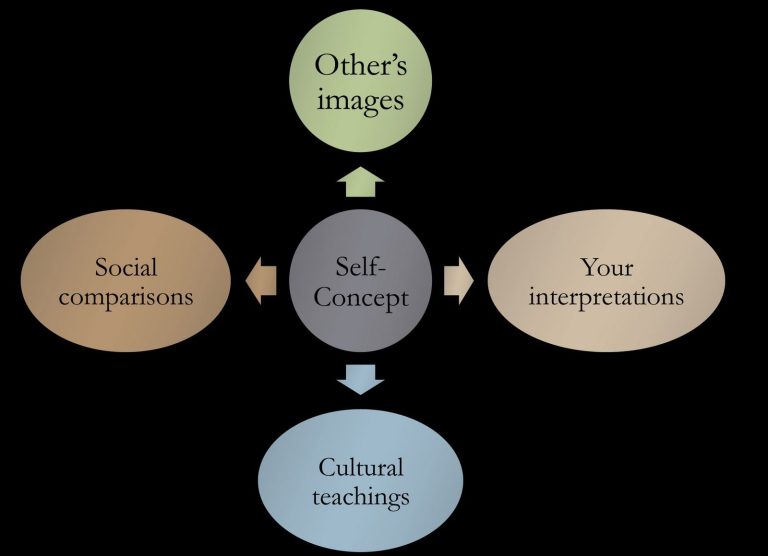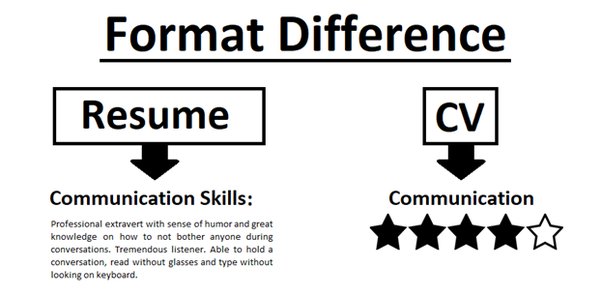Why Effective Speakers Are Effective Leaders?
Effective speakers are effective leaders because they can articulate their ideas persuasively and inspire others to take action. Their strong communication skills enable them to convey their vision, motivate their team, and build trust.
Effective speakers possess the ability to engage and influence their audience, which are crucial traits of successful leaders. Leaders who can communicate with clarity and impact are more likely to gain the trust and respect of their followers. Effective speakers have the power to captivate their audience, convey complex ideas, and drive change.
Their ability to communicate persuasively fosters collaboration, enhances decision-making, and boosts morale within the organization. We will explore the unique qualities that make effective speakers such compelling leaders and how their communication skills contribute to their success in leadership roles.
The Power Of Effective Communication
Effective speakers possess a unique ability to build connections through their communication skills. When leaders are able to effectively convey their ideas, thoughts, and vision to their team members, it establishes a sense of trust and understanding. Communication serves as a bridge that connects people together, fostering an environment of collaboration, cooperation, and shared goals.
Moreover, effective communication also helps in forming strong relationships with clients, stakeholders, and other external parties. By clearly articulating their objectives, leaders can inspire trust and confidence in their abilities, ultimately leading to successful partnerships and ventures.
Communication plays a critical role in the effectiveness of leaders. It impacts their ability to influence, motivate, and inspire others. When leaders are able to communicate their vision and goals clearly, it helps align their team members towards a common purpose.
Additionally, through effective communication, leaders are able to provide feedback, coach, and mentor their team members. This leads to individual growth and development, ultimately contributing to the overall success of the team and the organization.
Effective speakers possess the remarkable power to build connections and inspire others through their communication skills. By effectively conveying their ideas and vision, leaders can establish trust, collaboration, and cooperation among their team members. Communication also plays a pivotal role in the leadership journey, enabling leaders to influence, motivate, and inspire their teams towards a common goal. Moreover, through effective communication, leaders can provide feedback and mentorship, fostering growth and development within their team members. The impact of effective communication on leadership cannot be underestimated and is key to achieving success in any organization.
Characteristics Of Effective Speakers
Effective speakers possess certain characteristics that not only make them excellent communicators but also influential leaders. These individuals have honed their skills to articulate their thoughts and ideas in a compelling and impactful manner, allowing them to inspire, persuade, and motivate others. By mastering the art of effective communication, these individuals develop a strong presence and influence that propels them into leadership roles, where they can effectively convey their vision and inspire others to follow suit.
Confidence And Charisma
Confidence is a foundational trait of effective speakers. They exude self-assurance, which captivates their audience and instills trust in their message. Charisma further enhances their appeal, as they possess a magnetic charm that draws people in and makes their message all the more compelling.
Clarity And Conciseness
Clarity is paramount for effective speakers. They articulate their thoughts with precision, ensuring that their message is easily understood by their audience. Conciseness is equally important, as they deliver their message in a succinct manner, avoiding any unnecessary verbosity that may dilute their impact.
Active Listening
Effective speakers are not only adept at conveying their message but are also skilled in the art of active listening. They pay close attention to their audience, demonstrating genuine interest in their perspectives and feedback. This fosters a sense of inclusivity and understanding, allowing them to tailor their message to resonate with their audience.
Effective Communication Skills In Leadership
Effective speakers often make effective leaders because they possess exceptional communication skills that allow them to inspire, motivate, build trust, and resolve conflicts in their teams and organizations. Communication plays a vital role in leadership, and strong verbal and non-verbal communication skills are key to effective leadership. Let’s explore how these skills manifest in leadership.
Inspiring And Motivating Others
Great leaders are not just those who give orders but those who can inspire and motivate their team members. Effective speakers have the ability to use persuasive language and captivating delivery to uplift and energize their audience, creating a shared vision and a sense of purpose.
Building Trust And Respect
One of the fundamental aspects of leadership is the ability to build trust and respect within the team. Effective speakers can convey their ideas clearly and authentically, and this transparency fosters openness and trust among their followers. Clear and sincere communication builds a foundation of respect, allowing leaders to earn the trust of their team.
Conflict Resolution
Leaders are often tasked with resolving conflicts within their teams. Effective speakers excel in this area as they possess strong active listening skills and the ability to express empathy. Through effective communication, leaders can mediate disagreements, address issues, and find solutions that satisfy all parties involved, fostering a harmonious work environment.
Linking Communication And Leadership Success
Effective communication is the cornerstone of successful leadership. Leaders who are skilled communicators have the ability to inspire, motivate, and influence others. They possess the power to connect with their teams, make informed decisions, and drive positive change. By fostering a culture of open and clear communication, leaders not only improve their own effectiveness, but they also create an environment where their teams can thrive.
Improved Decision-making
Leaders who excel in communication are more likely to make well-informed decisions. When leaders effectively communicate their vision and goals, it ensures that their team members are aligned and have a clear understanding of the objectives. This shared understanding allows for efficient decision-making, as everyone is on the same page and can contribute their insights. Effective leaders also actively seek feedback and input from their team members, leveraging diverse perspectives to make more comprehensive and informed decisions.
Enhanced Team Collaboration
Effective communication plays a vital role in fostering collaboration within teams. Leaders who communicate clearly and transparently create an environment of trust and openness. This encourages team members to freely express their ideas and concerns, leading to increased collaboration and creativity. These leaders also provide clear directions, set expectations, and ensure that information flows freely throughout the team. By building strong communication channels, leaders foster a sense of camaraderie and teamwork, enabling their teams to accomplish more together than they could individually.
Increased Influence And Persuasion
Leaders who possess strong communication skills are able to articulate their ideas and visions persuasively. They can effectively convince others of the benefits of their proposed strategies and initiatives. This ability to influence and persuade is crucial for gaining support, securing resources, and driving change. Effective leaders use their communication skills to build credibility and trust by presenting their ideas clearly, tailoring their message to the audience, and actively listening to others. By doing so, they are able to inspire and motivate their teams, building a coalition of individuals dedicated to achieving shared goals.
Developing Effective Communication Skills For Leadership
Effective speakers have the power to become effective leaders by developing strong communication skills. Through their ability to express ideas clearly and connect with others, they can inspire and guide their team towards success.
Developing Effective Communication Skills for Leadership Leadership and effective communication go hand in hand. Without strong communication skills, it is challenging to lead a team, inspire others, or convey ideas effectively. Developing effective communication skills is crucial for individuals aspiring to become successful leaders. This section will delve into three essential aspects of communication skills that can help individuals become effective leaders: Public Speaking and Presentation Skills, Emotional Intelligence, and Seeking Feedback.Public Speaking And Presentation Skills
Public speaking and presentation skills are essential for leaders to effectively communicate their message and engage their audience. Whether addressing a small team or speaking in front of a large audience, leaders need to be able to express their thoughts clearly and confidently. The ability to communicate ideas persuasively is crucial in gaining support and influencing others. Mastering public speaking and presentation skills involves understanding the art of storytelling, structuring a compelling narrative, and utilizing visual aids effectively. Leaders who can captivate their audience through powerful speeches and engaging presentations can inspire and motivate others to take action.Emotional Intelligence
Emotional intelligence plays a pivotal role in effective leadership communication. Leaders who possess emotional intelligence are better equipped to understand and manage their own emotions, as well as interpret and respond to the emotions of others. This enables them to communicate with empathy, build rapport, and create a positive and productive work environment. Leaders with high emotional intelligence can navigate difficult conversations with grace, address conflicts diplomatically, and provide constructive feedback without undermining team morale. By recognizing and validating emotions, effective leaders can establish trust and foster open communication throughout their organization.Seeking Feedback
Leadership is a continuous learning journey, and seeking feedback is an integral part of personal and professional growth. Effective leaders understand the value of feedback and actively seek opportunities to enhance their communication skills. By soliciting feedback from peers, subordinates, and superiors, leaders can identify areas for improvement and refine their communication style. Constructive feedback can provide valuable insights into communication strengths and weaknesses, highlighting areas where leaders can focus their efforts on further development. By actively listening to and incorporating feedback, leaders can continuously hone their communication skills and adapt their style to better connect with their team. In conclusion, developing effective communication skills is essential for aspiring leaders. By mastering public speaking and presentation skills, cultivating emotional intelligence, and seeking feedback, individuals can improve their ability to connect, inspire, and lead others. Through consistent practice and dedication, anyone can develop the communication skills necessary to become an effective leader.Frequently Asked Questions For Why Effective Speakers Are Effective Leaders?
Why Is Being An Effective Speaker So Important To Someone In Leadership?
Being an effective speaker is crucial for leadership because it enables clear communication and inspires others. A leader who can articulate ideas concisely and persuasively gains trust and influence, boosts team morale, and builds strong relationships. Effective speaking skills help leaders motivate, align, and guide their team towards achieving goals.
Why Is The Speaker Effective?
The speaker is effective due to their engaging delivery, clear communication, and credibility. They connect with the audience, convey the message effectively, and establish trust through their expertise and authenticity. This captivates the audience and leaves a lasting impact.
What Is The Relationship Between Public Speaking And Leadership?
Public speaking and leadership are closely linked as effective communication is essential for leading and inspiring others. Strong public speaking skills help leaders convey their vision and ideas, build rapport, and motivate their audience. It showcases confidence and authority, crucial qualities for effective leadership.
Conclusion
Effective speakers possess a unique skill set that not only impacts their ability to communicate effectively, but also makes them exceptional leaders. The power of speech can inspire, motivate, and persuade others, allowing leaders to effectively convey their vision and influence those around them.
By mastering the art of effective communication, leaders can shape the direction of their team, foster collaboration, and achieve remarkable success. So, whether it’s on a global stage or within a small team, effective speakers have a distinct advantage in their leadership journey.
Harnessing the power of their words, they can inspire and guide others towards greatness.




